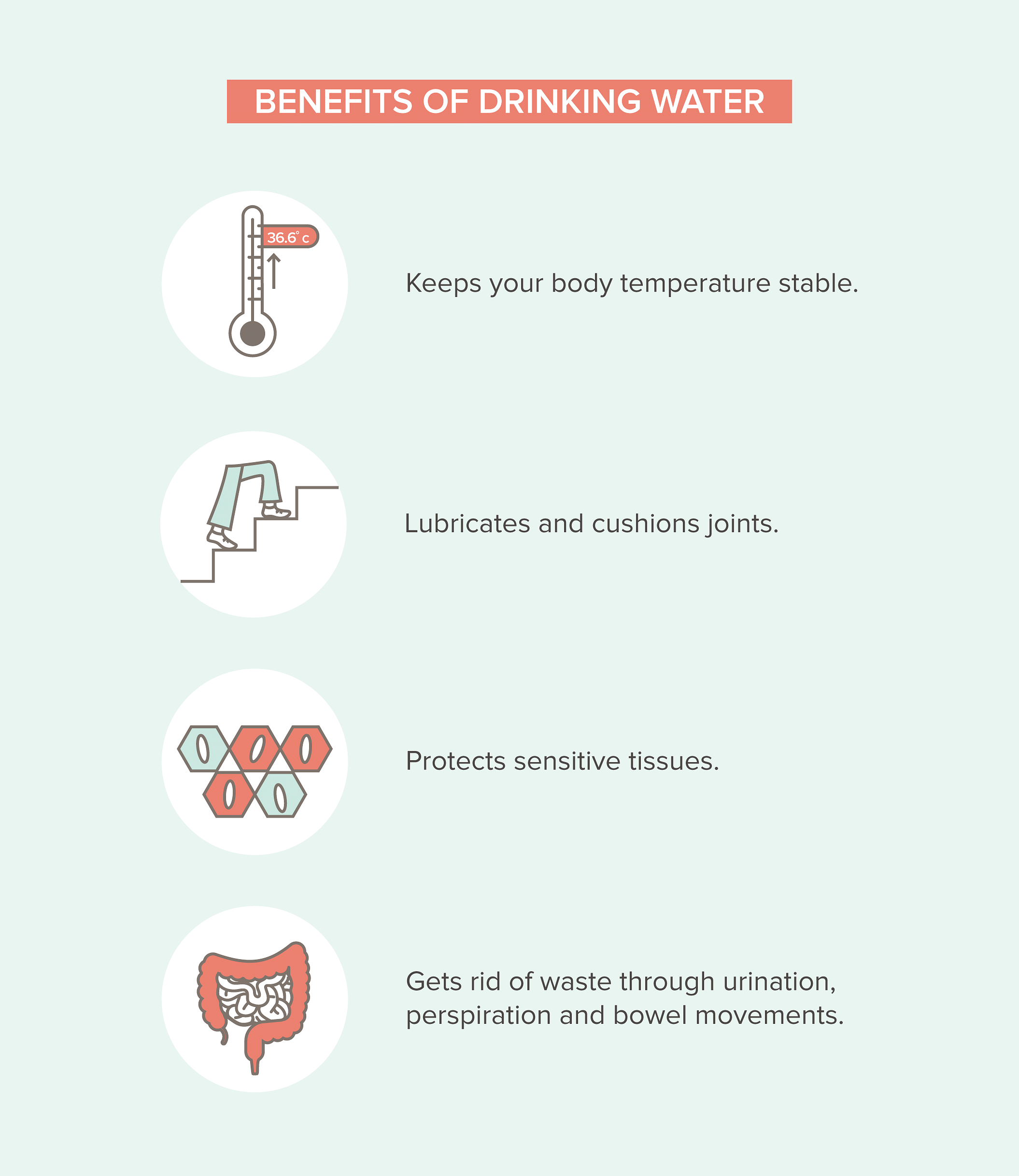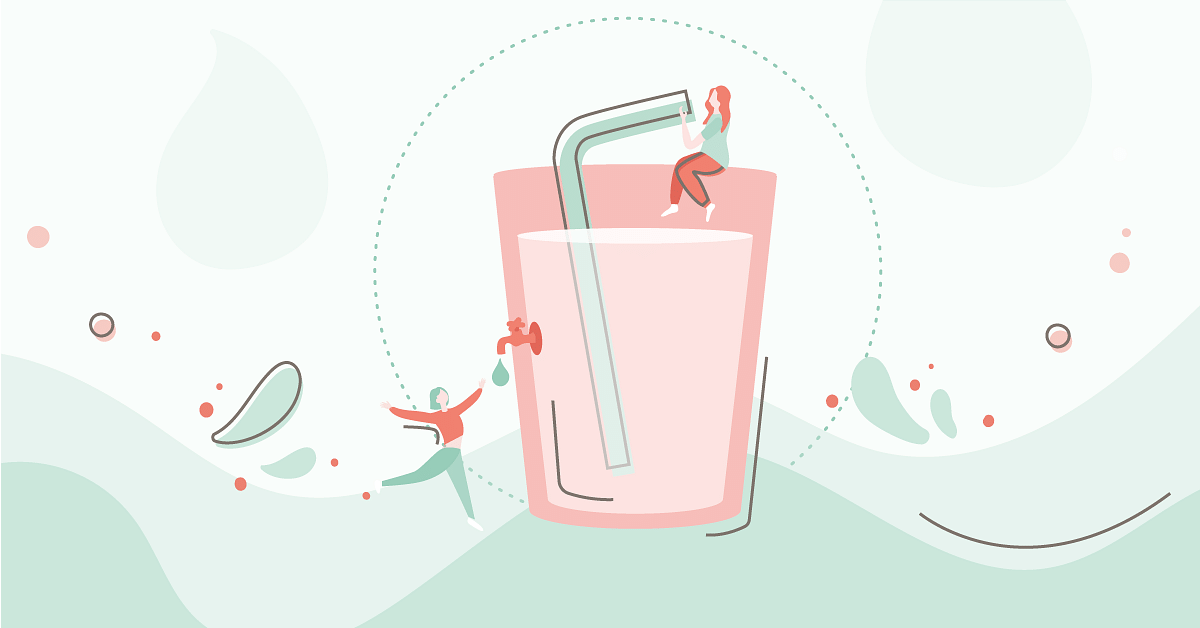“What are the actual benefits of drinking water?” This is a fairly simple question with no easy answer.
Over the years, studies across many medical fields have produced different recommendations. Your individual water needs depend on many factors – including your health, how active you are and where you live – to help you get the benefits of drinking water in the right amount.
What are the benefits of drinking water?
Water is your body’s principal component and takes upto 70% of your body weight. Every cell, tissue and organ in your body needs water to work properly.

Lack of water can lead to dehydration which prevents your body from carrying out normal functions. Even mild levels of dehydration can drain your energy and make you feel tired and fatigued.
How much water do I need?
Everyday you lose water through your breath, perspiration, urine and bowel movements. For your body to function at its best, you must replenish its water supply by consuming beverages and foods that contain water.
An adequate daily fluid intake is about 11.5 cups (2.7 litres) of fluids a day for women.
Do I need to drink 8 glasses a day to get the benefits of drinking water?
Most people can stay hydrated by drinking water and other fluids whenever they feel thirsty. For some people, less than eight glasses a day might be enough. However, others might need more.
You might need to modify your total fluid intake based on several factors such as your daily exercise, the weather where you live, any overarching health issues, or even pregnancy and breastfeeding. It’s best to consult your dietician or doctor to help you get the best recommendation for staying hydrated.
Is water the only option for staying hydrated?
You don’t need to rely only on water to meet your fluid needs. What you eat also provides a significant portion. For example, many fruits and vegetables, such as watermelon and spinach, are almost 100% water by weight.
In addition, beverages such as milk, juice and herbal teas are composed mostly of water. Even caffeinated drinks (such as coffee, juices and soda) can contribute to daily water intake but can be avoided. Sweet drinks usually contain a lot of added sugar, which may increase sugar levels in your body and make you consume more calories than needed.
How do I know if I’m drinking enough water?
Your fluid intake is probably adequate if:
- You rarely feel thirsty
- Your urine is colourless or light yellow
Your doctor or dietitian can help you determine the amount of water that’s right for you every day.
To prevent dehydration and make sure your body has the fluids it needs, make water your beverage of choice. It’s a good idea to drink a glass of water:
- With each meal and between meals
- Before, during and after exercise
- If you feel thirsty
Should I worry about drinking too much water?
Drinking too much water is rarely a problem for healthy adults. Athletes occasionally may drink too much water in an attempt to prevent dehydration during intense workouts.
When you drink too much water, (over the limit of regular water intake suggested by your doctor) your kidneys can’t get rid of the excess water. The sodium content of your blood becomes diluted. This is called hyponatremia and it can be life-threatening.
While rare, it is possible to drink too much water. People with certain conditions like thyroid disease, heart problems and certain anti-inflammatory drugs can make you retain water in the body. In such a situation, you must check in with your doctor to make sure you’re ingesting the right amount to reap the benefits of drinking water in the right quantity.
Our experts work round the clock to provide you with the answers that you are looking for. So, if you have any, leave it in the comment section below or send us a DM at @nuawoman. This is a safe space that we have built for you so do not hold back on any doubts you may have about your body and mind.
Read other articles by Preeti Chedda here.



